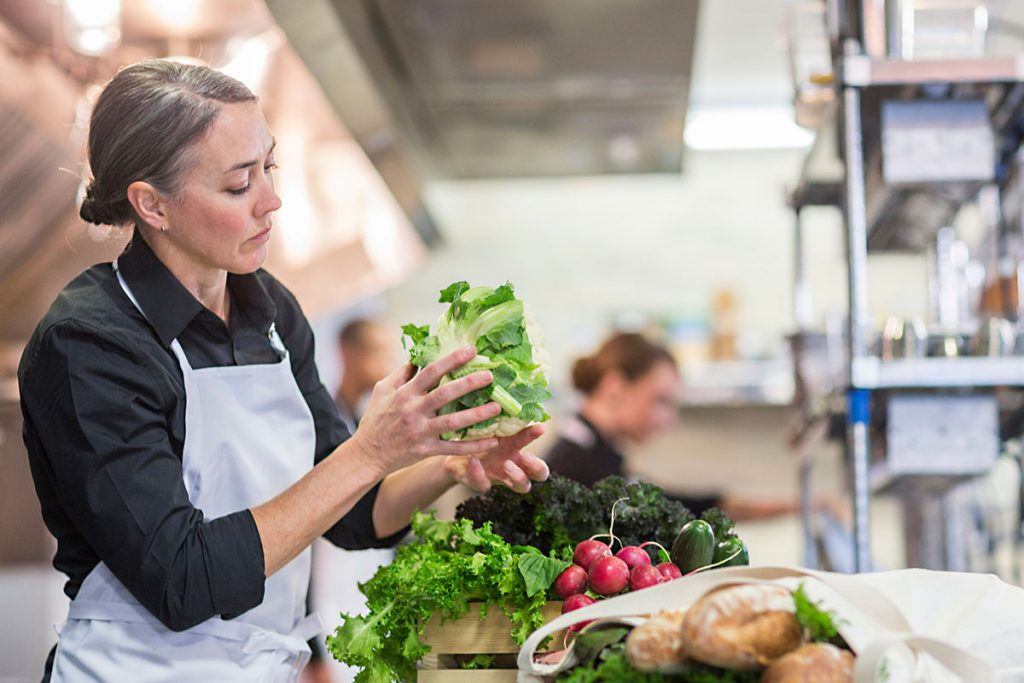Starting and running a successful food business can be an exciting decision. Like any other business, there are many factors that affect the productivity of a food enterprise. If you are keen, you can quickly thrive in the food industry and beat the competition. But have you thought about what makes other food businesses succeed while others are still struggling to maintain a strong position in the market? Maybe, if you’re thinking about opening a restaurant, you should consider conducting a restaurant feasibility study with the help of professionals in the field.
There are several areas to focus while starting a food business. Some of them are: properly maintaining restaurant inventory, keeping real-time records of purchase and sale, and retaining situational awareness across the business. By focusing on these areas, culinary entrepreneurs could be able to cut down on food waste, save money on food costs, and sustain in the long run. But manually working around a food business could be tiresome and difficult. However, for that, restaurateurs could take help of advanced computing technologies like a true-real time system, which could provide a holistic view and control of any organization by seamlessly connecting sensors with systems. Furthermore, through human-machine collaboration, system operators can be brought in to make critical decisions when necessary and not overwhelmed with meaningless data. To know more about such real-time applications that could benefit food businesses, you can read blog posts like https://vantiq.com/blog/3-things-people-get-wrong-about-real-time-applications/.
Besides the above mentioned information, this article will also discuss the other essential factors that determine the success of a food business. It will also help guide new entrepreneurs on the important considerations of starting a food business.
The Location of the Business
For most entrepreneurs, possessing adequate resources to run a business is the key to success. However, this is not always the case. For you to maintain reasonable profits, you have to identify a suitable location for your business. One way to find the best site is through identifying a place where your target market is.
Even though we all eat, that does not mean that every food business will pick in every site you select. Study your target market and understand their needs. Most importantly, set your business in an easy-to-access area. It ensures that your customers reach you with minimal stress.
Possession of Resources
You have secured a nice location to set your food enterprise. What next? We often think about the amount of revenue the business can generate and forget that we also require adequate resources before we get there. In your business plan, you must have an estimated budget. The financial estimate is what drives us to know the amount of funds required to finance the business.
As such, it can be easy to talk to lenders and gather enough resources to keep the business running. We also have to identify all the important business tools. When there is adequate equipment, running the business becomes easy. You don’t have to acquire everything at first. If you have limited resources, start with the most important equipment and then purchase the rest as you go on with the business.
Additionally, if you have to outsource some skills, do it as early as possible. Above all, conducting research remains crucial in finding the right skills. A qualified team will highly boost your business returns and maintain your customers throughout the year.

Obtain Permits
Any business that can affect the health of a human being requires special attention. Many states will require that you obtain permits before establishing the food venture. There is no harm in getting the right documents to run your food business. In fact, many customers would be happy getting services or purchasing food products from a certified and legalized business.
Where possible, apply for the documents in advance to avoid delaying the initiation of the business. If you lack knowledge about all the required legal documents, consult with experts. They can guide you on the process, and this may eventually save you a significant amount of money and time.
Talk to Your Landlord
If you have to rent some space, it is prudent to talk to the owner and agree on the terms and conditions of the contract. Be sure to note and understand all the policies of the agreement to avoid future inconveniences. Important issues to check include the payment terms, and the period covered in the contract. Additionally, find out if the contract covers unforeseen risks.
Be sure to note your liabilities as this is a common cause for landlord-tenant disputes. We are also likely to face challenges when it comes to identifying an affordable space. Despite the fact that everyone would want to locate their food business in a strategic site, that does not mean that you must go for every space you find in the specific location.
Conduct due diligence to examine the safety of the place and how much it costs. Consider identifying various options to compare their rates. You can also negotiate with your landlord to get a lower price. In the end, you will save some cash that can be used to finance other activities of the business. You could also look at getting a business cash advance just in case you need additional funds.
The Final Verdict
Starting a food business is not as easy as many entrepreneurs would think. You need to consider many factors to make the right decision. A good start does not always mean everything, but how you run the business even in the future impacts your success. If we are keen to observe the above factors, we can quickly make it in the food business sector. In recent times however, success of any food business majorly depends on using the right kind of technology to increase their sales and customer base. For example, many in the Food & Beverage sector employ Enterprise Resource Planning (ERP) software to tighten-up their operations, sales data, inventory, and finance, and bring them all under a centralized control. These very changes, when undertaken using the expertise of ERP firms like SYTE Consulting (https://sytecg.com/erp-for-manufacturing/) also tends to contribute towards best practices in the F&B industry. By keenly observing the above factors, we can quickly make it in the food business sector.



